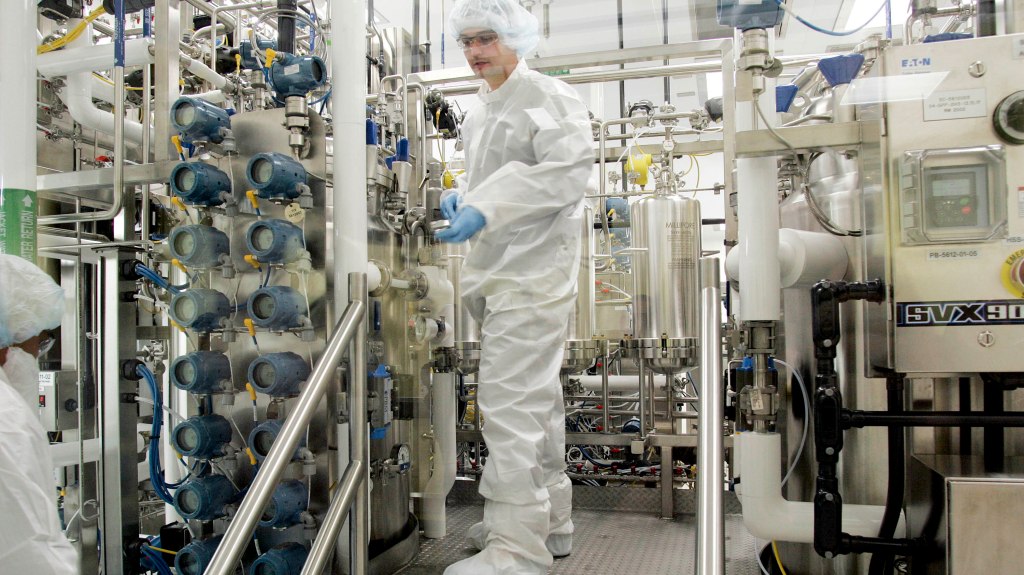Concerns Grow Over NHS Drug Rebate Scheme Impact on Research Funding
The UK faces the potential loss of billions in pharmaceutical research and development funding, as well as new medicine introductions in the NHS, unless significant changes are made to a sales rebate agreement, according to a study commissioned by the pharmaceutical industry.
This agreement features a cap on the total sales of branded medications to the NHS, after which companies are required to repay sales above this threshold. It aims to ensure predictable drug spending for the NHS while motivating innovation within the industry.
A report by WPI Economics indicates that if the current pricing scheme, which was established about 18 months ago, continues at a rate exceeding 20% of the companies’ UK revenue, the UK could forfeit up to £11 billion in R&D investment by the year 2033. However, returning to pre-2023 levels of below 10% could prevent this outcome.
This analysis was prepared for the Association of the British Pharmaceutical Industry (ABPI), which represents multinational pharmaceutical companies operating in the UK, as part of a strong lobbying effort urging the government to lower the rebate rate.
The report was released amid renewed warnings from leaders of numerous global pharmaceutical companies, including Abbvie, Gilead, and Novartis. Johan Kahlstrom, managing director for Novartis in the UK and Ireland, stated that “without urgent reform, the UK risks further lagging behind as other nations accelerate in rewarding innovation and attracting investments in life sciences.”
In March, the leaders of major drug companies, such as AstraZeneca and GSK, cautioned that the “excessive” rate imposed on newer branded medicines is detrimental to investments in a sector identified as a key growth area by the government.
They are advocating for a return to an “internationally competitive position” concerning the five-year agreement established in 2023, known as the voluntary scheme for branded medicines, pricing, access, and growth (VPAG).

Wes Streeting, the health secretary, has agreed to conduct an expedited review of the agreement, a response welcomed by industry stakeholders during his address to the ABPI’s annual conference in April.
Pharmaceutical executives express deep concern over the rising repayment rates, which threaten to reach record levels, emphasizing the growing dissatisfaction with the operational landscape in the UK.
Professor Sir John Bell, a prominent figure in the UK’s life sciences sector who advises the government on industry strategies, remarked in a recent interview that while the UK has enjoyed remarkable growth in life sciences, “the real risk is we lose it… because everyone else is competing for it.”
Additionally, U.S. President Trump is urging corporations to enhance manufacturing within the United States, resulting in several multinational firms announcing substantial investments there.
The report highlights that reducing the NHS scheme rates to under 10% could boost the gross domestic product by £61 billion over the next 30 years and generate an increase in tax revenue of approximately £20 billion.
Matthew Oakley, founder and director of WPI Economics, stated, “The burden of high repayment rates on company revenues has clearly obstructed growth in life sciences. This system threatens to lead to poorer patient outcomes and exacerbate health inequalities.”
The ABPI also conducted a survey of its members regarding how current rates have impacted their plans for new medicine launches, R&D investments, and hiring. The findings reveal that 19% of companies expect to cut R&D investments, and since the beginning of 2023, 15 new active substances and 38 new indications have not been introduced into the NHS.
A spokesman for the Department of Health and Social Care stated that the agreement, which was negotiated with the pharmaceutical industry, “enhances access to cutting-edge treatments for NHS patients while maintaining the sustainability of the medicines budget for taxpayers.”




Post Comment